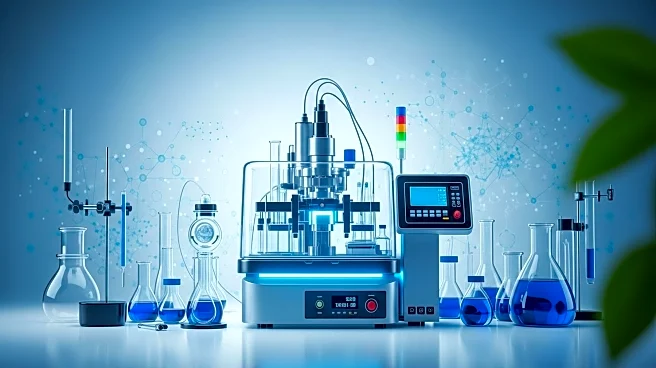What is the story about?
What's Happening?
The U.S. Food and Drug Administration (FDA) has announced a significant policy shift by phasing out mandatory animal testing for monoclonal antibody therapies. This change is part of the FDA Modernization Act 2.0, which allows for the use of human-derived organoids, computational models, and microphysiological systems in drug approvals. The move aligns with global trends, as the European Medicines Agency (EMA) is also advancing New Approach Methodologies (NAMs) to replace animal studies. The non-animal toxicology testing market is expected to grow significantly, driven by advancements in organ-on-a-chip systems, 3D tissue models, and AI-driven simulations.
Why It's Important?
This development marks a pivotal moment in the pharmaceutical and biotech industries, as it addresses ethical concerns and enhances the efficiency of drug development. By eliminating the requirement for animal testing, the FDA is paving the way for more humane and potentially more accurate testing methods. This shift could lead to faster drug approvals and reduced costs, benefiting both companies and consumers. The growing market for non-animal testing models presents lucrative opportunities for investors and innovators in the biotech sector.
What's Next?
As the FDA and EMA continue to promote non-animal testing methodologies, pharmaceutical companies are likely to increase their investment in these technologies. This could lead to further innovations in drug development and testing, potentially transforming the industry. Regulatory bodies will need to ensure that these new methods meet safety and efficacy standards, while also addressing any challenges related to implementation and validation. The transition to non-animal testing models may also influence global regulatory practices, encouraging other countries to adopt similar approaches.


















